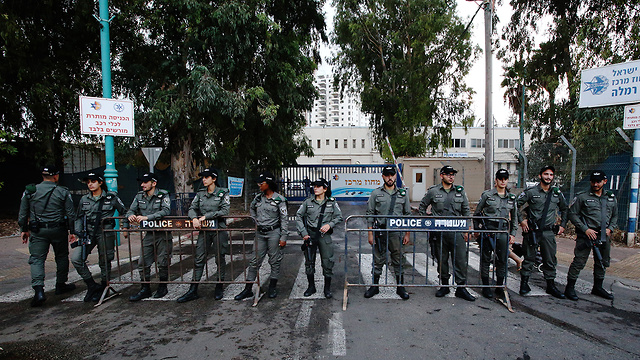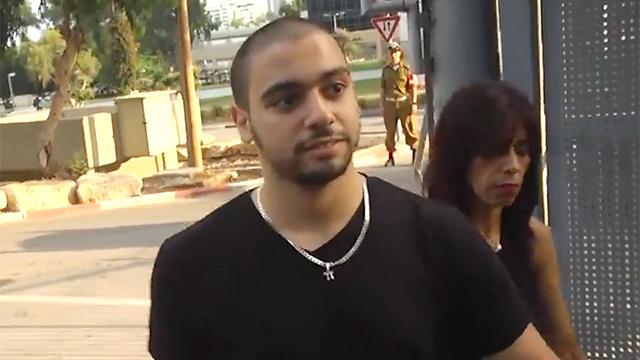
Are police, army trigger-happy towards minorities?
Opinion: When it comes to some sectors in society, the police seem to have an itchy trigger finger - especially Arabs, Bedouins and Ethiopian Jews; but where does the line cross between law enforcement and abuse of power?
The cadets in training were assigned missions, one of which was manning a border crossing north to Jerusalem.

It was a Saturday and the commander had spotted a Palestinian getting off a cab and trying to go around the border crossing and enter Israel through a nearby field.
One of the cadets called the Palestinian to halt, but the man kept on approaching the border. The cadet then lifted his weapon and fired at the suspect's legs, but instead of hitting his legs or feet, he hit the Palestinian in the head, killing him instantly.
The High Court of Justice on Tuesday, had ruled to indict the police officer who shot and killed 22-year-old Khair Hamdan in Kafr Kanna in 2014, after the Arab Israeli youth tried attacking policemen with a knife while shouting "Allahu Akbar".
In doing so, the High Court annulled the attorney general's decision to close the case against the policeman.
The two cases I have described here are completely different, but both are deep in the gray area between an itchy trigger finger and an almost impossible reality where cops or soldiers must take fateful decision within seconds, sometimes making the wrong decision.
I watched the video of the incident in Kfar Kanna and it is indeed shocking, like every video depicting someone's dying moments.
On the other hand, the policeman is no Elor Azaria - an IDF soldier who shot a Palestinian, who stabbed one of Azaria's fellow soldiers, in the head while the assailant was laying wounded on the ground.
The policeman did not shoot a terrorist lying on the ground, but a hot-headed young man wielding a knife.
Were the lives of the police officers, sitting in an armored patrol car, at risk? My impression, as someone watching the video in the safety of their home, is that the policemen lives were not at risk.
Would I have acted like that policeman? It may very well be.
They say you can't judge a person until you've walked a mile in their shoes, but this is exactly the justice system's job – a judge doesn't have to be a highly-trained military man to decide whether a soldier was following orders or not, and the attorney general doesn't have to be a former SWAT officer to decide whether to indict a policeman or not.
If it were up to me, I wouldn't have reopened the case against the police officer five years after it was closed. But I am no judge, not even a lawyer, and my impression, as a citizen, is that both decisions are reasonable - Both the attorney general's decision to close the case and the High Court's decision to reopen it by a majority ruling of 2 judges to one.
So is the nature of gray areas – there is no black and white.
Still, there is a public issue at hand here that we should pay attention to, and there is a feeling that when it comes to some sectors in society, the police seem to be very trigger-happy - especially Arabs, Bedouins and Ethiopian Jews.
If the hilltop youth, who hurled rocks at troops in Yitzhar a week ago, were Arab or Ethiopian, they would surely no longer be among the living.
Therefore, the state should form a committee headed by a retired Supreme Court judge and featuring representatives of various sectors in society, retired police officers, academics, etc.
The committee should then look in depth into this impossible reality, not just to prevent the next unnecessary death, but also to restore the public's trust in the police.












